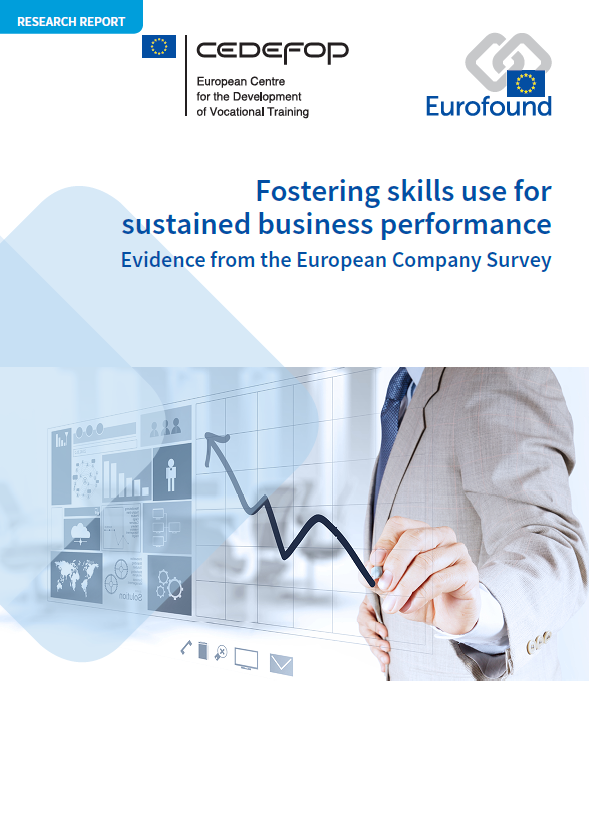
Human resources contribute to the success of an organisation though their skills. According to the ability, motivation, opportunity (AMO) model, employee contributions to organisational performance depend on their skills, their motivation to draw on their skills, and the opportunities to do so. Organisations can adopt managerial approaches cultivating ability (A) by facilitating learning, creating opportunity (O) by providing employees with autonomy, and encouraging motivation (M) by leveraging monetary and non-monetary motivational drivers.
This report is based on the 2019 European Company Survey (ECS 2019). It shows that managerial approaches cultivating AMO are positively linked to establishment performance, and that these approaches are driven by an organisational culture that values employees as an asset to the organisation. People-centred managerial approaches that harness workplace wellbeing are central to the mechanism linking human capital utilisation to business outcomes.
Key findings
To ensure policy efforts aimed at increasing the skills base of the labour force have maximum impact, businesses need to ensure employees’ new skills are used optimally. Without policies that specifically target the practical application of skills, the benefits generated by increased skills will not materialise.
The 2023 European Year of Skills is an important opportunity to focus on policies aimed at stimulating skills use within organisations – and not just policies aimed at reinforcing the skills base in the labour force. It is critical that EU-level policy continues to push for the improved use of human resources in organisations which can boost company performance and strengthen resilience to shocks, such as the recent pandemic.
New findings underline the importance of creating a motivating workplace for employees and the crucial links between managerial practices and skills use in workplaces. There is a growing awareness and recognition about the role of management in creating the right conditions for employees to make use of their skills and thus improve the efficiency, innovativeness, and adaptability of companies.
People-centred managerial approaches that harness workplace well-being are key to making the best use of human capital as well as to more successful business outcomes. This finding holds across different countries, sectors, and organisations of different sizes: promoting workplace well-being is not just beneficial to employees but is an important factor in translating employee skills into positive business performance. Policymakers and social partners have a vital role to play in encouraging managers to adopt a people-centred approach and to create the conditions for this to happen.
Future-oriented policies are essential to ensuring the next generation of managers, leaders, and entrepreneurs understand the importance of a people-centred management culture and practices that create opportunities for employees to develop and use their skills. Universities and management and business schools can contribute to achieving this by integrating these aspects fully in their teaching.
- Number of pages
-
62
- Reference nº
-
EF21010
- ISBN
-
978-92-896-3576-9
- Catalogue nº
-
TI-07-23-062-EN-N
- DOI
-
10.2801/425052
- Permalink
Cite this publication
Cedefop and Eurofound (2023). Fostering skills use for sustained business performance: evidence from the European Company Survey. Luxembourg: Publications Office of the European Union.
